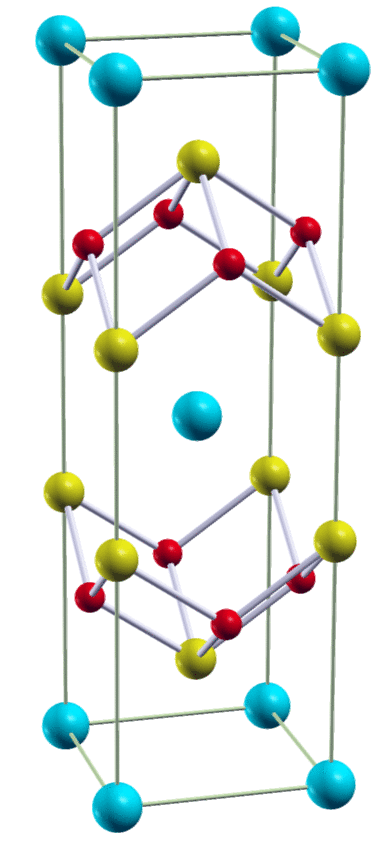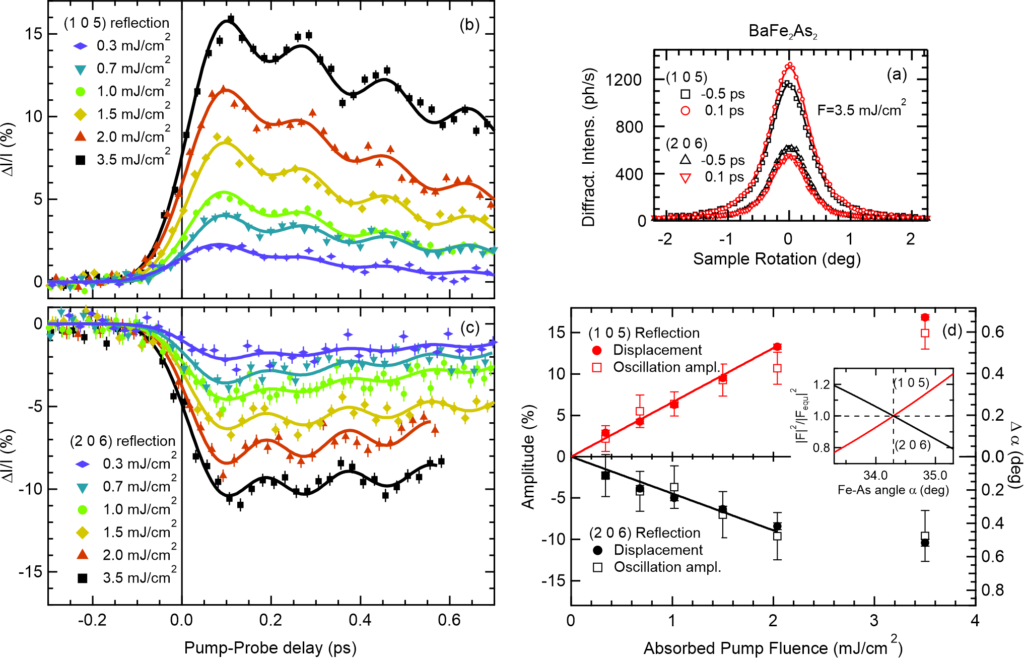Studying the ultrafast dynamics of the lattice can reveal a lot of information about the intimate coupling of the strucutral degree of freedom to the other material’s subsystems. Wheras energy transport between subsystems, typically encountered as heat signatures, typically progresses as incoherent process, sometimes also coherent motions of specific lattice vibrations can be triggerend by ultrafast laser excitations. Tracking the fingerprints of such vibrations in both the lattice and e.g. the electronic degree of freedom allows for a direct experimental determination of the electron-phonon coupling constant of the mode in question.We have recently demonstrated this approach in the Fe-pnictide parent compound BaFe2As2 in a seminal proof-of-concept experiment.
Ultrafast Structural Dynamcis of the Fe-Pnictide Parent Compound BaFe2As2.

In the complex phase diagram of the Fe pnictide high-Tc superconductors, superconductivity emerges in close proximity to the antiferromagnetic (AFM) ground state, which is accompanied by a structural tetragonal-to-orthorhombic phase transition. In these compounds, the electronic structure and the magnetic properties depend very sensitively on the height of the As atoms in the Fe-As tetrahedra, resulting in a strong magneto-elastic coupling which has been proposed to be important for superconductivity. This pnictogen height and thereby the Fe magnetic moments are modulated by the coherent A1g phonon mode, which has been previously observed in time-resolved optical, THz and photoemission (trARPES) experiments. Using femtosecond time-resolved X-ray diffraction (trXRD) in the Fe pnictide parent compound BaFe2As2, we directly probe this structural degree of freedom and quantify the transient coherent motion of As atoms. Comparison with the trARPES data allows us to derive the electron-phonon (e-ph) deformation potential for this particular mode, demonstrating its importance for the e-ph coupling in this compound.

Publications
- Y. W. Windsor, D. Zahn, R. Kamrla, J. Feldl, H. Seiler, C.-T. Chiang, M. Ramsteiner, W. Widdra, R. Ernstorfer, L. Rettig
Exchange-striction driven ultrafast nonthermal lattice dynamics in NiO
Phys. Rev. Lett. 126, 147202 (2021)
- L. Rettig, S. O. Mariager, A. Ferrer, S. Grübel, J. A. Johnson, J. Rittmann, T. Wolf, S. L. Johnson, G. Ingold, P. Beaud, and U. Staub
Ultrafast Structural Dynamics of the Fe-Pnictide Parent Compound BaFe2As2
Phys. Rev. Lett. 114, 067402 (2015)